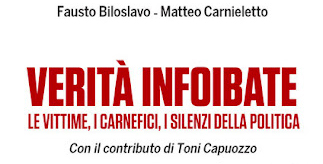Autore: Eligio (Ligio) Zanini
Note biografiche:
Eligio (Ligio) Zanini, born on 30th September 1927 in Rovigno (Rovinj) where he lives, he got his degree as a primary school teacher. From September 1947 until the whole 1948 he was the coordinator for the Italian schools at the Pola (Pula) Education Department, but in January 1949 he was arrested due to political reasons and afterwards he was imprisoned in the dreadful concentration camp in the Isola Calva (Goli Otok). He was released in 1952 and he was forced to work as a storekeeper and later as an accountant in different companies of Pola; in 1959 he went back to teaching: first in Salvore/Savudrija and then in Valle/Bale (with a brief period in Rovigno as a clerk). After many years spent at school he retired to private life being a fisherman and a poet. Since 1970 is a member of the Croatian Society of Men of Letters. His poems are collected here: Moussoli e scarcaciuò (Trieste, 1965), Buleistro (Milano, 1966), Mar quito e alanbastro (Trieste, 1968), Tiera viecia-stara (idem, 1970), Favalando cul cucal Fileipo (Trieste, 1979), Razgovor s galebom Filipom (croatian edition and with original parallel text, Fiume, 1983), Sul sico della Muorte Sagonda (Udine, 1990). Narrative work: Martin Muma, novel, La Battana edition, Fiume 1990.
Scheda critica:
The only narrative work published so far by Ligio Zanini, the most important Istrian modern poet writing in the vernacular Istriot language, is the autobiographical novel “Martin Muma” (La Battana, Fiume 1990), from which we have selected some extracts belonging to the topic of this collection. They are taken from the chapter “The bitter destiny of dawn flowers” (pages 179-182 and 187-188). During the period in which the narrated events take place, the very first months of 1947 in Pola, the author was in that city and he witnessed the great exodus of the Italian people in view of the end of the administration by the Anglo-American Allied Military Government and the annexation of the Yugoslavia. Together with the episode of the exodus other social and political events are involved, foreshadowing in their bitterness, Zanini’s personal tragedy: he will be deported in the Isola Calva concentration camp.
Titolo estratto: The hollow eye sockets
 Language
Language Italian
Italian
